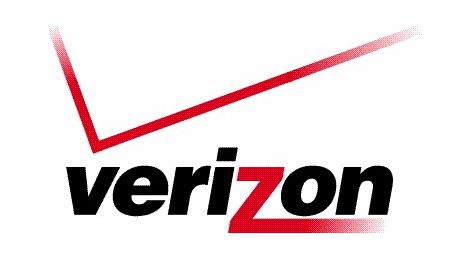Verizon Share Everything plans: What you need to know
Verizon's recent plan changes may have customers rightly confused

Data sharing is the latest attempt by U.S. carriers to lure mobile device owners toward a more profitable service, all while promising to add extra value for the consumer.
Verizon Wireless was the first to introduce a "one data bucket for all" plan earlier this year with AT&T following close behind, even as rivals Sprint and T-Mobile dismiss the concept entirely in favor of individual unlimited data offerings.
Once their golden geese, talk and text are now included as unlimited "freebies" in place of new plans which favor sharing a single pool of data with up to 10 devices for one monthly price.
All you can eat voice, text
With more and more subscribers now owning smartphones, tablets and mobile hotspots, cellular data usage has skyrocketed in recent years. Seizing on this trend, carriers have earmarked data as their latest cash cow.
The good news for frequent talk and texters is that Verizon's Share Everything plan includes unlimited helpings of both.
Gone are the days of worrying about how many minutes remain on your voice plan, and with no roaming or long-distance charges within the United States, users can talk as much as they'd like and never be saddled with those awful overage charges.
Text, picture and video messages within the U.S. are likewise unlimited, which also extends to participating networks in Canada, Mexico, Puerto Rico and the Virgin Islands.
Get daily insight, inspiration and deals in your inbox
Sign up for breaking news, reviews, opinion, top tech deals, and more.
The shift to data sharing means that international calls or text messages will be the only additional charges phone users will have to worry about now.
Enter shared data
Previously, Verizon customers were required to purchase data plans for each individual device, which frequently offered more data than many users needed.
This problem was particularly thorny for families, who would ultimately pay for multiple buckets of data, which often went unused.
With Share Everything, users can now start with as little as 1GB of data per month and use it with up to 10 different devices, including smartphones, basic phones, mobile hotspots, USB modems, cellular-connected netbooks and tablets.
While existing users won't be forced into Share Everything until they choose to adopt it, the plan is now the sole option for new customers – even those with a single device.
How it works
Determining how much Share Everything will cost is easy.
First, add up how many devices you'll be using. Smartphones have a monthly line access charge of $40; basic phones cost $30; mobile hotspot or USB modems are $20, and tablets are only $10 per month.
Next, determine your data needs. For talk and text devices, the monthly account access charge starts at $50 for 1GB of shared data, with each additional 1GB overage costing $15; five additional plans are featured, maxing out at 10GB for $100 per month.
Shared plans are also available for data-only devices, with USB modems and tablets starting at $30 per month for 4GB, with the option for 6GB for $40, 8GB for $50 or 10GB for $60.
There are even two plans available strictly for basic phones: $10 per month for 700 minutes, with pay-per-message and pay-per-megabyte data ($1.99 per MB), or 300MB shared data with unlimited talk and text for $40 per month.
Simply put, a single user with one smartphone who chooses the unlimited talk and text plan and the 10GB data option (which is the maximum that Verizon offers new subscribers) will pay a whopping $140 a month.
Mobile hotspot included
If you like the flexibility of turning your smartphone or tablet into a Wi-Fi mobile hotspot, the good news is this coveted feature is included absolutely free with Share Everything.
That's right: What previously cost $20 extra per month is now a bonus for switching to a shared data plan, and using it taps into the same pool of data.
Worried about running out of data? Users can change their data allowance anytime using My Verizon without extending or otherwise affecting their two-year agreement.
Likewise, users who need more than 10GB of shared data each month can add it in 2GB increments for an additional $10 per month, but only via My Verizon.
Everything else
While AT&T's competing Mobile Share is currently optional for its customers, Verizon is requiring Share Everything for new accounts, although adding devices with their own data plans (such as cellular-equipped iPads) is entirely optional.
Current Verizon customers, however, are not required to switch to Share Everything at this time, but can do so without extending their current contract term or incurring any fees.
The carrier also isn't requiring users still clinging to an old unlimited data plan to switch to Share Everything, but these customers will now be required to pay full retail price when switching to a new phone.
Finally, Share Everything plans are not yet available for business or enterprise customers, but Verizon intends to launch such an option for customers with more than 10 devices in late 2012.
Verizon claims the average user consumes less than 2GB of data per month, so its website recommends the 4GB shared data plan, which costs $180 per month for three devices (two smartphones and one basic phone).
To determine how much the plan might cost you, Verizon offers a handy online calculator on their website. Enter each device with an estimate of its data usage, and see at a glance if Shared Everything is right for you.